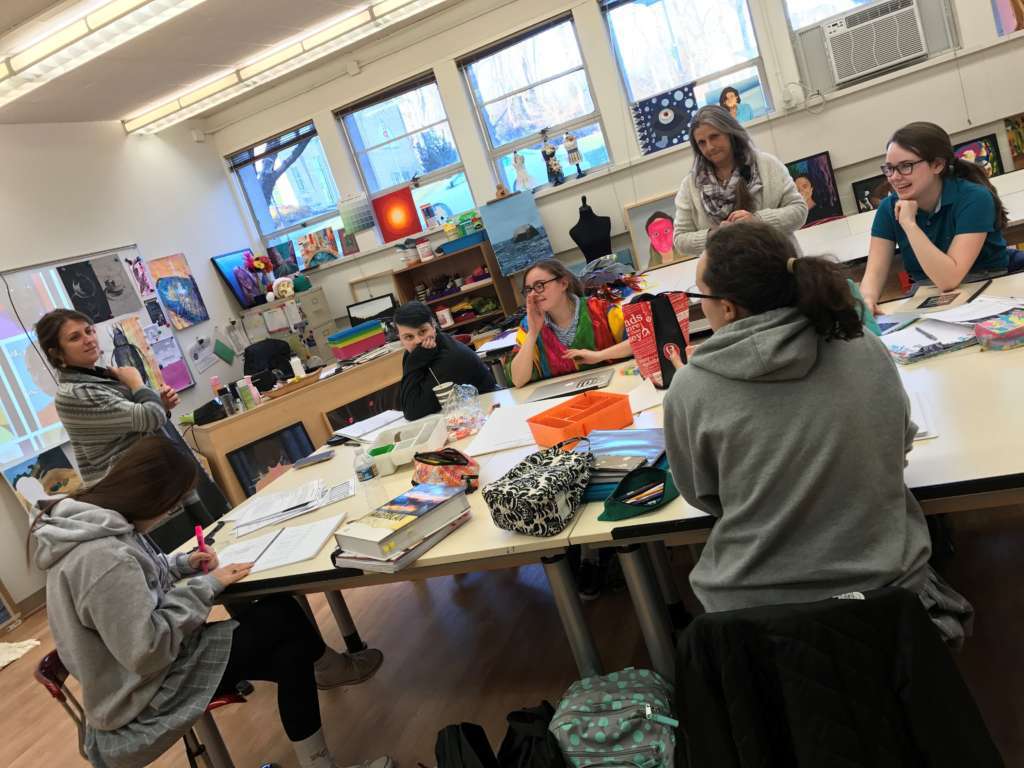WASHINGTON — On a recent afternoon at Connelly School of the Holy Child in Potomac, Maryland, a group of 40 or so teens rehearsed for the upcoming spring musical, “Joseph and the Amazing Technicolor Dreamcoat” — but with a few adjustments to the script.
The lights remained on, the volume stayed relatively low, and the length of the production was cut to 60 minutes. It was a rehearsal for the school’s sensory-friendly rendition of the Tony-nominated musical, tailored for children with autism.
“[People with autism] describe typical theater productions sometimes as totally overwhelming with lights and strobe effects, with sound being very loud or unexpected, and then just not having space in the audience to move around or maybe move their bodies or get up when they need to,” said Carrie Gillispie, a doctoral candidate in special education and disability studies at George Washington University and a consultant on the school’s production.
“We try to shift the expectation.”

At the school’s sensory-friendly show on Saturday, Feb. 24, audience members will be able to talk, dance and move around the auditorium throughout the free performance. A downloadable program — or “social story” — gives context to the show ahead of time with photos of the actors and instruments used in the production, as well as the location of the closest bathroom and dedicated “quiet room.”
“It’s about setting expectations so that people aren’t too overwhelmed with the noise, the visuals and just the general experience of being in a large room with a lot of people,” Gillispie added.
In the last seven years, sensory-friendly performances have become increasingly popular — including on Broadway, with adapted shows of “Aladdin” and “Wicked” — and Theatre Development Fund has been at the forefront of the movement.
“We are seeing, all across the country, theaters really realizing how important this adjustment is and how great it is for families to have the opportunity to experience live theater in an environment that’s entirely judgment free … and have a place where they can feel accepted, because honestly, that’s what theater is all about,” said Colleen Mullen, the accessibility programs manager at Theatre Development Fund.
The organization, which provides training to theater companies all over the country, is currently working with D.C.’s Ford’s Theater on an autism-friendly rendition of “The Wiz” in May. In New York, it buys out theater houses, makes the necessary adjustments to a show, and then sells tickets at a discounted rate to families who have children with autism.
“You know, this is something that there is a real hunger for and there is an audience for, and I think any theater is always looking to put butts in seats and giving people the opportunity to come to a show where they can feel like they’re going to be accepted is huge,” Mullen added.
This is the Connelly School’s third year offering a sensory-friendly version of its musical, and visual and performing arts director Elsbeth Fager said each year attracts a bigger crowd.
“It’s a big deal to be able to have a show where you can come in and out as you need to and move around as you need to, so the response has been really positive so far,” Fager said, adding that other schools in the area have approached her about doing something similar.
The Connelly School of the Holy Child’s sensory-friendly production of “Joseph and the Amazing Technicolor Dreamcoat” is Saturday, Feb. 24 at 11 a.m. The show is free and open to the public. The full-length shows run Friday, March 2 and Saturday, March 3. Information on tickets and times is available on the school’s website.






